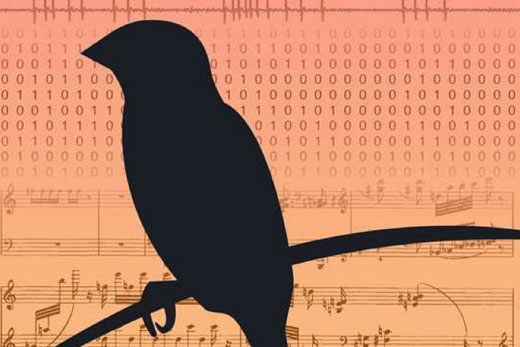Timing is key for brain cells controlling a complex motor activity like the singing of a bird, finds a new study published by PLOS Biology.
"You can learn much more about what a bird is singing by looking at the timing of neurons firing in its brain than by looking at the rate that they fire," says Sam Sober, a biologist at Emory University whose lab led the study. "Just a millisecond difference in the timing of a neuron's activity makes a difference in the sound that comes out of the bird's beak."
The findings are the first to suggest that fine-scale timing of neurons is at least as important in motor systems as in sensory systems, and perhaps more critical.
"The brain takes in information and figures out how to interact with the world through electrical events called action potentials, or spikes in the activity of neurons," Sober says. "A big goal in neuroscience is to decode the brain by better understanding this process. We've taken another step towards that goal."
Sober's lab uses Bengalese finches, also known as society finches, as a model system. The way birds control their song has a lot in common with human speech, both in how it's learned early in life and how it's vocalized in adults. The neural pathways for birdsong are also well known, and restricted to that one activity.

